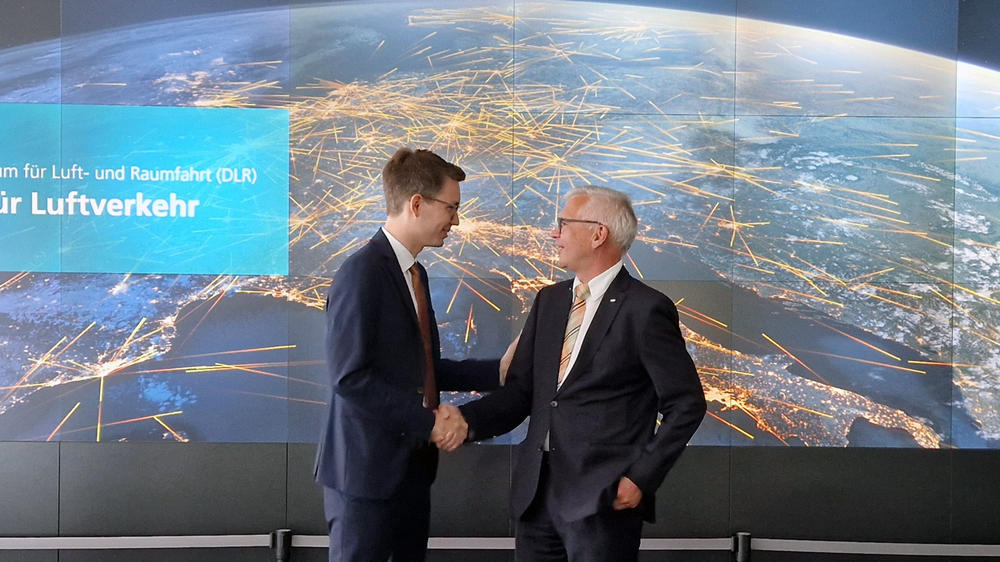Doctorate on Model-Based Evaluation of Aircraft Designs Successfully Completed

- Doctoral thesis on the evaluation of future aircraft deployment successfully defended
- Integration of technical and economic influencing factors
- Methodological foundation for ecological and economic assessment of new aircraft concepts
Modelling Future Aircraft Deployment in Global Air Transport
To date, the design of new commercial aircraft often proceeds without directly accounting for the actual range likely to be used in airline operations. In reality, airlines frequently operate aircraft on routes much shorter than their maximum range – with significant impacts on both cost-efficiency and environmental footprint.
In his dissertation, titled “Assessment of Aircraft Designs Based on Global Aircraft-to-Route Assignment”, Dr. Markus Kühlen developed an innovative evaluation model that addresses this gap. It maps which aircraft types would most likely be used on which routes in global scheduled traffic – depending on factors such as fleet structure, airport capacity, technological developments, passenger demand, and airline competition.
Methodological Approach: Mathematical Optimisation for Realistic Scenarios
The model is based on a mathematical optimisation approach. Rather than optimising individual flights, the goal is to realistically allocate aircraft to routes within the global scheduled network. This includes not only technical performance data but also economic parameters such as operating costs, fleet structures, demand distribution, airport capacity, and market behaviour.
Real-World Applications
This approach enables early evaluation of future aircraft concepts under realistic operating conditions – both economically and environmentally. The model's application was demonstrated in two case studies:
- The first study examined whether a future short-haul aircraft would be more economically viable with turbofan or turboprop propulsion.
- The second simulated the introduction of a new medium-haul aircraft and assessed its impact on global flight allocation.
The model is already being used in practice, including in DLR internal projects such as EXACT and ALICIA, where it supports the design, evaluation, and strategic development of new aircraft technologies.
We warmly congratulate Dr. Markus Kühlen on completing his doctorate and thank him for his significant contribution to the advancement of systemic evaluation methods in air transport research.
